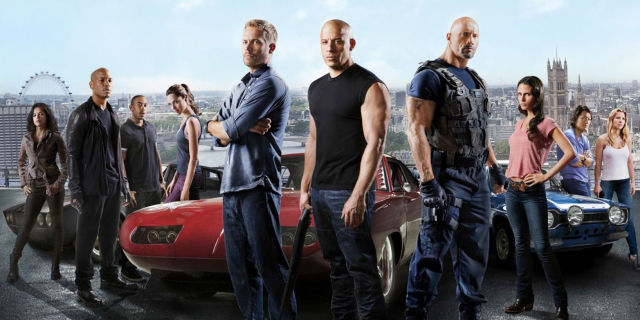“HABANAWOOD” WITH DOLLARS: HOLLYWOOD DREAMS OF CUBA.
Hollywood teams have turned to the Communist Island to shoot on the ruined streets.
After the diplomatic rapprochement between the United States and Cuba, Hollywood teams have turned to the Communist Island to shoot in the ruined streets and colonial buildings, while the local film industry is facing a crisis.
Due to the U.S. embargo, Hollywood had for half a century that look for other locations to recreate the Baroque charm of Cuba. “Godfather 2”, of Francis Ford Coppola, and Sydney Pollack’s “La Habana” were filmed partially in Dominican Republic, while the scenes in Havana from James Bond “Goldeneye” and “Die Another Day” movies were filmed in Cadiz, Spain.
After obtaining in January for permission to shoot on the island, several teams of Hollywood filming have come to Havana, a phenomenon that has been called “Habanawood”.
Series of the television Showtime “House of Lies”, with Don Cheadle, was the first to benefit from the partial lifting of the embargo in force since 1962 and big productions have followed suit: the next installment of the series of hit movies “Fast and Furious” and “Transformers” were also filmed in Cuba.
“We are in a place that no one would have believed possible. We are in Havana, Cuba. And you can see the beautiful thing is, with all these wonderful people,”said Vin Diesel, star of” Fast and Furious “, in a message posted on Youtube.
The piracy market Cuban TELEVISION INVADES.
In a country where the average salary is nearly $20 per month, about 250 Cubans were hired locally for “Fast and Furious”, with a salary of $30 the day, according to the independent magazine OnCuba.
The small screen has not been on the outside: the presenter star Conan O’Brien and the stars of the show “The Kardashians” have also recently discovered Cuba.
Recently the 11 million inhabitants of the island have had theoretical access to the giant of film distribution service for streaming Netflix, but other provisions of the embargo prevent Cubans pay for that service. But Cubans are no strangers to large film production of United States. During the last half-century pirate copies have screened on television and in cinemas State without the right to claim… thanks to the embargo.
This fever for Cuba, for now, leaves no visible benefits to the local film industry, affected by the economic crisis and the lack of a cinema law, requested the Government for three years by Cuban filmmakers.
The Cuban Film Institute (ICAIC) said that money earned by services to the North American film companies will be used to develop the national industry, but people wonder how? and what is it?. The Cuban independent producers, tolerated but not legalized, achieved very little State support and suffer delays, censure or negative in their requests for work.
“Everyone knows what you earn Chanel and Hollywood choose Havana, the city stopped in time, with its destroyed beauty; the forbidden capital combining art deco and the cold war. The question is what won us? “, said journalist Sergio Alejandro Gómez in his blog Medium, becoming echo of the popular feeling.
Claudia Calviño, 33 years and executive producer of the independent production company Fifth Avenue, which funded the “Juan of the dead” zombie comedy, held the sudden passion of Hollywood by Cuba, but regretted that these “content have access to services and opportunities that so often denied to national productions, especially the independent films”.
Calvino recalled that when he requested permission to rent some vehicles from the Park of the ICAIC for a film of Turkish director Fatih Akin, they were denied him by pointing out that the editorial lines of the film “not represented Cuba in the best way”.
The film “Treacle” Carlos Lechuga, on a small sugar town fall into oblivion, was screened at the Festival de Cine Latinoamericano of Havana in 2012 and won the prize of the critics. Film took it almost a year to get authorization to be exhibited and could only be projected in a room.
Once figurehead of Latin American cinema, Cuban cinema has fallen into crisis due to lack of resources and a policy aimed at its development under current conditions, said lettuce.
“Now it seems easier to be film Batman vs Superman 2 in Havana that a young Cuban filmmaker made his opera prima with a transparent and full support”, told AFP.
Cuban cinema has received support from the United States, but not the major Hollywood studios, but the independent film. During the Festival of cinema of Havana in December, a delegation from the Sundance Film Institute sent to directors, screenwriters and actors, including star Ethan Hawke, to conduct workshops in scripts, production, mounting, and sound recording.
The Institute founded by Robert Redford, whose support for the Cuban filmmakers dates back to the Decade of 1980, plans to conduct in July a display to familiarize the Cuban audience with Cuban and American independent films.
“The diplomatic thaw between Cuba and the United States is a unique opportunity for the Institute to return to Cuba in a culturally and politically crucial time,” said Paul Federbush, director of this exhibition.
Agencies/NuevoHerald/Frankie TAGGART/Carlos BATISTA/InternetPhotos/TheCUbanHistory.com
THE CUBAN HISTORY, HOLLLYWOOD.
“HABANAWOOD” CON DOLARES: HOLLYWOOD SUEÑA CON CUBA.
Los equipos de Hollywood se han volcado a la isla comunista para rodar en sus calles derruidas.
Tras el acercamiento diplomático entre Estados Unidos y Cuba, los equipos de Hollywood se han volcado a la isla comunista para rodar en sus calles derruidas y construcciones coloniales, mientras la industria cinematográfica local enfrenta una crisis.
Debido al embargo estadounidense, Hollywood tuvo durante medio siglo que buscar otras locaciones para recrear el encanto barroco de Cuba. “El Padrino 2”, de Francis Ford Coppola y “La Habana” de Sydney Pollack se rodaron parcialmente en República Dominicana, mientras que las escenas en La Habana de películas de James Bond como “Goldeneye” y “Die Another Day” fueron rodadas en Cádiz, España.
Tras obtener en enero permiso para filmar en la isla, varios equipos de rodaje de Hollywood han llegado a La Habana, en un fenómeno al que se ha denominado “Habanawood”.
La serie de la cadena de televisión Showtime “House of Lies”, con Don Cheadle, fue la primera en beneficiarse del levantamiento parcial del embargo vigente desde 1962 y grandes producciones han seguido su ejemplo: la próxima entrega de la serie de películas de éxito “Fast and Furious” y “Transformers” también fueron filmadas en Cuba.
“Estamos en un lugar que nadie hubiera creído posible. Estamos en La Habana, Cuba. Y se puede ver lo hermoso que es, con toda esta gente maravillosa”, dijo Vin Diesel, estrella de “Fast and Furious”, en un mensaje publicado en Youtube.
EL MERCADO DE LA PIRATERÍA INVADE LA TELEVISIÓN CUBANA.
En un país donde el salario promedio es de casi 20 dólares por mes, unos 250 cubanos fueron contratados localmente para “Fast and Furious”, con una paga de 30 dólares el día, según la revista independiente OnCuba.
La pequeña pantalla no se ha quedado por fuera: el presentador estrella Conan O’Brien y las estrellas del show “The Kardashians” también han descubierto recientemente Cuba.
Desde hace poco los 11 millones de habitantes de la isla han tenido acceso teórico al servicio del gigante de distribución de películas por streaming Netflix, pero otras disposiciones del embargo impiden a los cubanos pagar por ese servicio. Pero los cubanos no son ajenos a la gran producción cinematográfica de Estados Unidos. Durante el último medio siglo copias piratas han sido proyectadas en la televisión y cines estatales sin derecho a reclamación… gracias al embargo.
Esta fiebre por Cuba, por ahora, no deja beneficios visibles a la industria del cine local, afectada por la crisis económica y por la falta de una ley de cine, solicitada al gobierno desde hace tres años por los realizadores cubanos.
El Instituto de Cine cubano (ICAIC) dijo que el dinero ganado por servicios a las compañías cinematográficas norteamericanas será empleado en desarrollar la industria nacional, pero la gente se pregunta ¿cómo? y ¿a cuánto asciende?. Las productoras independientes cubanas, toleradas pero no legalizadas aún, logran muy poco apoyo estatal y sufren demoras, censuras o negativas en sus peticiones de trabajo.
“Todos saben lo que ganan Chanel y Hollywood al escoger La Habana , la ciudad detenida en el tiempo, con su destruida belleza; la capital prohibida donde se mezclan el art deco y la Guerra Fría. La pregunta es ¿qué ganamos nosotros?”, planteó el periodista Sergio Alejandro Gómez en su blog Medium, haciendose eco del sentir popular.
Claudia Calviño, de 33 años y productora ejecutiva de la productora independiente Quinta Avenida, que financió la comedia de zombies “Juan de los muertos”, celebró la pasión repentina de Hollywood por Cuba, pero lamentó que estas “megaproducciones tengan acceso a servicios y oportunidades que tan a menudo se les ha negado a las producciones nacionales, especialmente las películas independientes”.
Calviño recordó que cuando solicitó permisos para rentar algunos vehículos del parque del ICAIC para una película del director turco Fatih Akin, le fueron negados señalando que las líneas editoriales del filme “no representaban a Cuba de la mejor manera”.
La película “Melaza” de Carlos Lechuga, sobre una pequeña población azucarera caída en el olvido, se proyectó en el Festival de Cine Latinoamericano de La Habana en 2012 y ganó el premio de los críticos. A la película le tomó casi un año obtener autorización para ser exhibida y sólo se pudo proyectar en una sala.
Alguna vez mascarón de proa del cine latinoamericano, la cinematografía cubana ha caído en crisis por falta de recursos y de una política encaminada a su desarrollo en las condiciones actuales, señaló Lechuga.
“Ahora parece más fácil que se filme Batman vs Superman 2 en La Habana a que un joven cineasta cubano haga su ópera prima con un apoyo total y transparente”, dijo a la AFP.
El cine cubano ha recibido apoyo desde Estados Unidos, pero no de los grandes estudios de Hollywood, sino del cine independiente. Durante el Festival de Cine de La Habana en diciembre, una delegación del Instituto de Cine de Sundance envió a directores, guionistas y actores, incluida la estrella Ethan Hawke, para realizar talleres de guiones, producción, montaje y grabación de sonido.
El Instituto fundado por Robert Redford, cuyo apoyo a los realizadores cubanos se remonta a la década de 1980, tiene previsto realizar en julio una exhibición para familiarizar al público cubano con películas estadounidenses y cubanas independientes.
“El deshielo diplomático entre Cuba y los Estados Unidos es una oportunidad única para el Instituto para regresar a Cuba en un momento cultural y políticamente crucial”, dijo Paul Federbush, director de esa exhibición.
Agencies/NuevoHerald/Frankie TAGGART/Carlos BATISTA/InternetPhotos/TheCUbanHistory.com
THE CUBAN HISTORY, HOLLLYWOOD.








